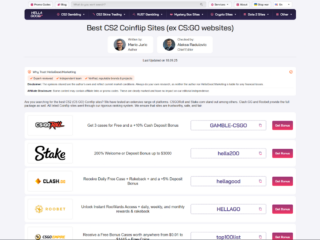
The online casino sector has rapidly adapted to technological innovation; what began with centralized systems and basic web protocols has matured into platforms powered by decentralized architecture, modular blockchain design, and advanced scaling solutions.
These innovations are dictating the next generation of online casinos, delivering greater efficiency, transparency and flexibility in how games are deployed, secured and monetized.
From Centralized Systems to Decentralized Platforms
Earlier iterations of online casinos operated on centralized servers, handling game logic, authentication and payments in isolated systems. This structure commonly stimulated trust concerns, increased vulnerability to outages and limited interoperability.
However, with the integration of blockchain technology, new online casinos now use distributed ledgers and smart contracts to deliver secure, provably fair games. Here, decentralized models eliminate the need for intermediaries and allow real-time verification of transactions and game outcomes, reinforcing trust through transparency and diminishing operational friction.
Modular Blockchains and Composable Game Design
The adoption of modular blockchain frameworks authorizes next-generation casinos to separate fundamental functions—consensus, execution and data availability—into distinctive layers. This modularity supports platform customization while facilitating rapid scaling.
Meanwhile, game developers benefit from composable systems, where smart contracts and core functionalities can be reused or integrated across diverse dApps. Here, a game engine can operate on a high-performance execution layer while financial assets remain secured on a separate, more robust chain—this approach facilitates innovation and resilience equally.
Rollups and the Quest for Scalability
Scalability has long been a challenge for blockchain-based applications, particularly when real-time interactions are involved. However, rollups—layer-2 scaling solutions—address this issue by batching transactions and submitting compressed data to the main blockchain.
Typically, optimistic rollups are selected for general-purpose computation while zero-knowledge (zk) rollups offer faster finality and cryptographic proof of correctness. For online casinos, rollups provide smoother gameplay, faster settlement and lower transaction costs, particularly during periods of high user activity.
Token Economies and Player Incentives
Tokenization is critical in rescalibrating the incentive structures of modern online casinos—traditional rewards systems are giving way to decentralized models built on native tokens and NFTs. These assets serve multiple purposes: access to exclusive games, governance participation or direct economic rewards.
In tandem, gamified staking, liquidity mining and marketplace integration are transforming passive users into active stakeholders.

Through these, platforms can tailor their token economies through smart contracts, reducing manual overhead while aligning user engagement with platform sustainability. Such dynamic incentive mechanisms encourage long-term loyalty and community growth.
Cross-Chain Interoperability and Asset Portability
Online casinos built on modular chains and rollup architectures are increasingly integrating cross-chain protocols to support asset portability. Players can wager using tokens from one blockchain and receive payouts on another without disruption.
Moreover, bridges, sidechains and interoperability frameworks reduce barriers to entry and expand liquidity pools; this functionality supplements notions of greater user experience while furnishing developers with the flexibility to optimize platform performance based on the strengths of different networks. It also lays the groundwork for unified gaming spheres where assets retain value across innumerable platforms.
Privacy Enhancements and Regulatory Readiness
Despite the oscillation leaning toward decentralization, regulatory compliance remains a consequential facet of online casino operations. Here, privacy-boosting technologies like zero-knowledge proofs and selective disclosure tools accommodate know-your-customer (KYC) and anti-money laundering (AML) requirements without exposing sensitive user data.
These innovations provide a secure means of validating identity and transaction legitimacy while concurrently protecting personal information. In addition, embedding compliance into the architecture from the ground up supports legal alignment and long-term viability in one fell swoop.
On-Chain Randomness and Trustless Game Outcomes
Meanwhile, random number generation (RNG) is a foundational component of casino gaming, with blockchain-based platforms advancing how it is implemented. This has provided a boost, where traditional RNG methods lacked transparency and were vulnerable to manipulation.
In this context, on-chain RNG solutions—like Chainlink VRF—enable verifiable randomness through smart contracts, producing outcomes that are equally transparent and tamper-proof. This verifiability builds trust among users and supports broader adoption of competitive and high-stakes games on decentralized platforms. It also allows developers to implement fairness guarantees directly into gameplay logic.
Edge Computing for Low-Latency Gaming
Latency remains a concern in decentralized systems, particularly for real-time casino games. Edge computing addresses this challenge by executing data-intensive tasks closer to the user’s physical location; moreover, combined with rollup technology, edge nodes can manage local computations and submit verified results to the blockchain.

This hybrid approach supports high-speed gameplay and greater responsiveness while preserving decentralization. Moreover, platforms can maintain performance without sacrificing the integrity of the gaming venture—such innovations are critical for competing with traditional centralized casino platforms in terms of user satisfaction.
DAO Governance and Community-Led Development
As decentralized casinos continue to grow, many are shifting toward governance models controlled by Decentralized Autonomous Organizations (DAOs). These structures use smart contract voting systems, allowing token holders to decide on upgrades, new game launches, fee structures and treasury allocation.
DAO governance builds greater transparency, decentralizes control and encourages community engagement—over time, DAOs can metamorphose into comprehensive governance bodies that support innovation while preserving platform stability. This participatory approach reinforces existing alignment between developers and users, overarchingly driving sustainable growth.
Final Note
Next-generation online casinos are being constructed on a veritable foundation of advanced technologies, including modular blockchains, rollups, cross-chain interoperability and on-chain randomness. Each element contributes to more secure, scalable and engaging platform conditions for all.
As these innovations mature, online casinos will transition from centralized platforms into decentralized ecosystems where users, developers and communities all share in value creation. The transition is underway—and it is technological, architectural and economic in equal measure.










